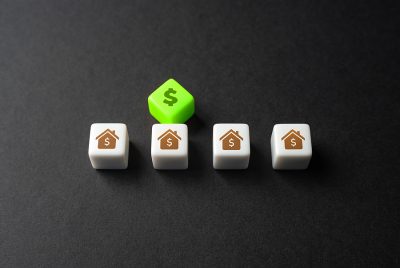How to get a home loan when you’re self-employed?
If you’re one of the two million Australians who is self-employed, you may be worried about your chances of securing a home loan. But while lenders are generally more cautious about offering mortgages to the self-employed than those on a regular pay cheque, there are steps you can take to improve your chances of being approved.
Reduce debt
If you’re able to, pay off any outstanding debts such as personal loans or credit cards before embarking on the loan process. Being debt-free will improve your credit rating, which may help you qualify for a bigger home loan. Plus, defaults or errors in your credit history may delay your loan application, so it’s worth resolving these as soon as possible.
And the higher you deposit, the better your chances of securing a home loan. So start saving if you can.
Prepare your paperwork
Ensuring your financials are in order before applying for a mortgage will increase your likelihood of being approved.
Many lenders will ask for your business and personal tax returns for the last two years, so lodge any outstanding returns before you apply for a loan. Lenders will usually look for a steady income that shows you can make your mortgage repayments.
Unfortunately, most lenders won’t consider your home loan application if you’ve been self-employed for less than a year. This is because you won’t have any tax returns to verify your new income. If you’ve been in business for between one and two years, you’ll have access to a variety of products and lenders, but special conditions may apply.
Many lenders will also ask for your Business Activity Statements (BAS), bank statements and verification from your accountant. To maximise your chance of positive outcome, it’s important to provide accurate information from the start.
Consider a Low Doc loan
If you’re missing some of this financial documentation or you’ve been self-employed for only one to two years, you may be able to apply for a Low Documentation (Low Doc) home loan. To apply for a Low Doc loan, you’ll need to meet a number of criteria and provide relevant documentation. For example, you’ll have to prove you’ve been self-employed for at least a year, provide your ATO verified BAS for the past 12 months and confirm you’ve been registered for GST for 12 months or more. You may also be asked to supply statements from your business and personal bank account for a six-month period. Some Low Doc loans come with restrictions such as no construction allowed. At Mel Finance, we can guide you to find a lender, Who would let you build your own dream home.
Work with an expert
Navigating the complex home loan sector alone can be a minefield. That’s why it pays to work with a qualified mortgage broker in Melbourne with expert knowledge in home loans. Mortgage brokers are well versed in securing home loans for self-employed individuals and small business owners. They will guide you on every step of the journey, have access to a panel of lenders and products, and will only apply for a loan you’re likely to be approved for. Plus, using a mortgage broker won’t cost you a cent. Mel Finance specialised in handling complicated company set ups and complicated trust entities.
Need more expert financial advice to secure your home loan?
It’s certainly a little more complicated to secure a home loan if you’re self-employed. But with the help of a mortgage broker, there’s no reason why you can’t achieve your dream of home ownership.
Mel Finance offers a friendly, flexible and efficient mortgage broking service, personalised to meet your needs. We’re dedicated to finding the best loan for your circumstances. Contact us today to discuss the right financial arrangement for you.
Related Link:
How Can I Get The Best Home Loan For Me?






